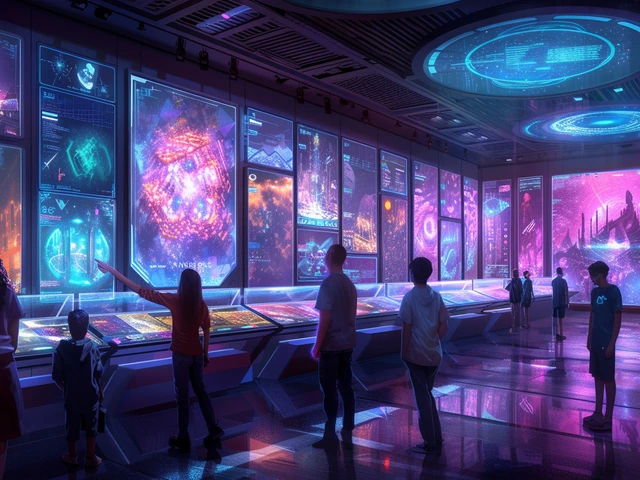Artificial Intelligence vs. Human Intelligence: A Comparative Study

Artificial Intelligence vs. Human Intelligence: A Comparative Study
Defining Artificial and Human Intelligence
In our quest to understand the differences between artificial and human intelligence, we first need to define these concepts. Artificial Intelligence (AI) is a technology that mimics human intelligence, enabling machines to learn from experience, adjust to new inputs, and perform tasks that typically require human intellect. On the other hand, human intelligence, innate in every individual, is a multifaceted ability that includes learning from experiences, understanding complex concepts, applying knowledge to manipulate one's environment, and using abstract thought.
Learning and Adaptability: AI vs. Humans
One of the most distinctive differences between AI and human intelligence is the way they learn and adapt. AI learns and adapts through machine learning algorithms and neural networks, continually improving its performance. However, it still lacks the spontaneity and fluidity of human learning. Humans can learn from a single experience and apply the lessons in different contexts. Our adaptability allows us to navigate complex and unknown situations, a skill AI is yet to master fully.
Emotional Quotient: The Human Edge
While AI can mimic human intelligence, it cannot emulate human emotions. Emotion plays a significant role in our decision-making process, allowing us to understand others' feelings and react accordingly. This emotional quotient is a key aspect of human intelligence, and while AI can be programmed to recognize and respond to human emotions to a certain extent, it lacks the empathy and emotional depth that humans possess.
Speed and Precision: The AI Advantage
In terms of speed and precision, AI has a clear advantage over human intelligence. AI can process vast amounts of data much faster and more accurately than a human can. This ability makes AI incredibly valuable in fields like data analysis, where speed and precision are paramount. Additionally, AI is not prone to the fatigue that can affect human performance, allowing it to maintain consistent productivity levels.
Dependence and Independence in Decision Making
Lastly, let's look at the independence of decision making. Human intelligence allows for independent thought and decision-making, characterized by creativity, innovation, and intuition. AI, on the other hand, is dependent on human input for decision-making. While it can make decisions based on data and algorithms, it lacks the ability to think independently and creatively.
In conclusion, while AI has made remarkable strides in mimicking human intelligence, it still lacks the emotional depth, adaptability, and independent thought that characterize human intelligence. However, it excels in speed, precision, and data processing, making it a valuable tool in various fields. This comparative study has shed light on the strengths and shortcomings of both forms of intelligence, highlighting the potential for AI and human intelligence to complement each other in the future.
About
CH Tech Development is a premier resource for the latest updates and insights in the world of technology development. We provide extensive information, articles, and guides on cutting-edge technological advancements. Explore our site to empower your knowledge about the dynamic field of tech development.
Latest Posts


The Ultimate Programming Tutorial: Your Ticket to Digital Success
By Cassandra Upton Aug 29, 2023

Coding Tips: Simplifying Complex Coding Concepts
By Silas Hawthorne Jul 26, 2023

Coding Tips: The Torchbearer for Every Coding Task
By Silas Hawthorne Jul 26, 2023

Write a comment